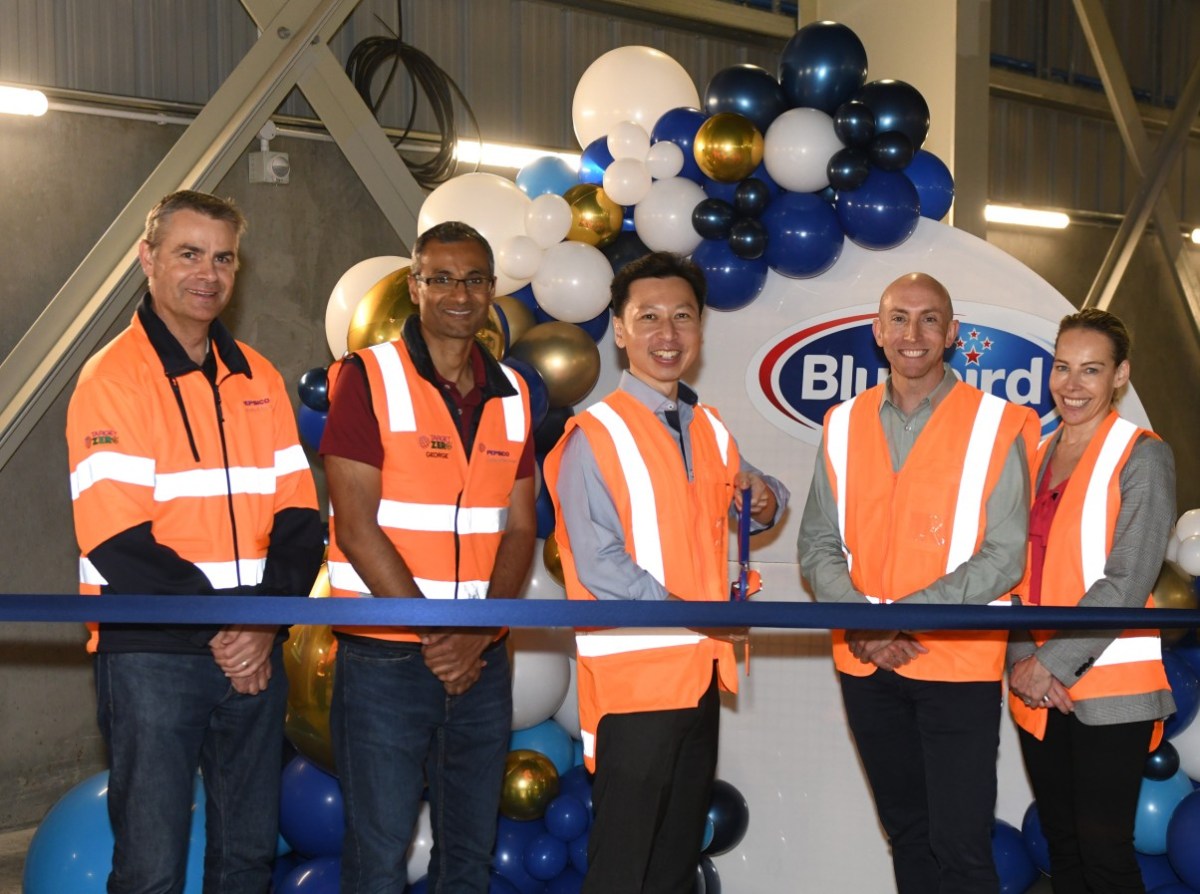Wiri-based snack food manufacturer, Bluebird, has celebrated the commissioning stage of its new automated warehouse this week, featuring a $26.5 million state of the art automated storage and retrieval system (ASRS).
The Bluebird ASRS is one of the largest systems of its type in New Zealand and can hold 13,500 pallets of chips.
With a footprint of 3300m2 and an elevation of 38 metres, the automated warehouse will allow the company to increase its operational efficiency by optimising space and reducing material handling and product waste.
The new system is part of the $40 million invested into the business over the past three years, with upgrading technology, improving employee facilities, and enhancing environmental performance of the business, being key focus areas.
Bluebird General Manager, Michelle Cassettari, says the ASRS warehouse is one of Bluebird’s biggest projects since PepsiCo acquired the iconic Kiwi brand in 2007.
“This investment into the facilities represents the growing demand for our iconic snacks that Kiwis know and love,” says Cassettari.
“We produce an astounding amount of chips, close to half a million bags per day, and the new ASRS will allow us to keep up with demand and operate more efficiently and sustainably by reducing truck movements and pallet usage.”
Sustainability continues to be a priority for Bluebird, with the iconic snack brand continually looking for new ways to reduce its environmental footprint. Currently, more than 90 per cent of all waste materials from the Wiri site are recycled – including dirt, peel,
packaging, cardboard and plastic. Water usage has been reduced by 28 per cent over the past five years and the site is powered by 100 per cent renewable energy.
“We are thrilled that the new automated system will support our commitment to minimising waste and promoting positive change for the planet and its people,” concludes Cassettari.
In April this year Bluebird celebrated its 70-year anniversary. The company was founded in 1953 by young entrepreneur, Les Saussey, who first began selling popcorn at the Western Spring Speedway in Auckland, later moving into potato chips, and fast becoming a Kiwi favourite.



